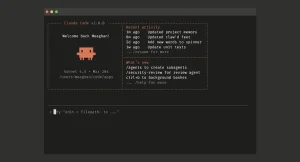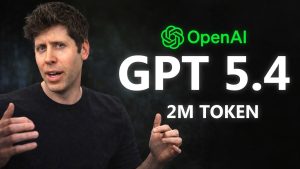OpenAI Navigates Challenges Amid Structural Changes

In the ever-evolving landscape of artificial intelligence, OpenAI, a key player, is facing significant challenges. Despite a recent restructuring to appease critics, tensions are mounting. Prominent figures such as Elon Musk and major investors like Microsoft are scrutinizing OpenAI’s direction. These dynamics underscore the complexities tech giants face in balancing innovation with stakeholder expectations.
OpenAI’s journey to foster AGI (artificial general intelligence) for humanity’s benefit is hitting roadblocks. Stakeholder concerns, especially about financial caps and mission focus, create hurdles. This discussion highlights shifting dynamics within AI, revealing the delicate balance between ethical considerations and financial motivations in today’s tech industry.
Google’s Gemini Advances
Google’s recent update to its Gemini series offers exciting enhancements. The Gemini 2.5 Pro Preview is now capable of generating user interfaces and apps with ease. Additionally, it allows for creative transformations like turning nature photos into animations, thus expanding the toolkit for developers and creators alike.
Microsoft’s Expanding AI Horizons
Microsoft is making strides with its AI-integrated PCs and tablets. The latest Surface models can run AI locally, bypassing internet requirements. Priced competitively, these devices promise accessible AI computing power for the average consumer.
Furthermore, enhancements in Windows AI functionalities allow simple voice-command-based setting changes, indicating a user-friendly approach. Microsoft’s moves signify a growing trend of integrating AI into everyday tools.
Emerging Video Models Revolutionize Content Creation
Lightricks introduces a powerful open-source video model.
This model accelerates clip generation significantly, even faster than real-time playback, enhancing creative efficiency for users. In parallel, HeyGen’s Avatar IV can produce realistic lip-synced avatars from photos and scripts, a step forward in digital realism.
These innovations represent the rapid evolution in AI video tools, providing a myriad of new possibilities for content creators working across various platforms and media.
OpenAI’s Structural Shifts Under Scrutiny
Elon Musk opposes OpenAI’s reorganization plans.
In a bid to maintain its non-profit’s power, OpenAI revised its restructuring plan, retaining board control. However, the removal of profit caps stirs debate, potentially altering investor dynamics. Critics argue this move may shift focus from ethical AI development to profit-driven motives.
This tension highlights the ongoing struggle within tech firms to align mission and profit, especially in industries as revolutionary and impactful as AI. Both internal and external pressures continue to shape OpenAI’s strategic decisions.
AI Productivity Tools on the Rise
AI-driven tools are reshaping productivity solutions across industries. Lens offers seamless video editing capabilities, using straightforward prompts to enhance video content efficiently.
DeepL provides instant translation services, breaking language barriers effortlessly. Codename Goose is an innovative AI agent that automates tasks, integrating smoothly with existing software solutions.
GenAI’s Impact on Industry Practices
Generative AI, or GenAI, is transforming business operations. A 5-minute assessment by Turing offers insight into its real-world value. This streamlined process unveils performance gaps, proving the tangible impact of AI on productivity.
As organizations strive for efficiency, understanding GenAI’s role in driving results is crucial. These insights encourage businesses to leverage AI for maximum return on investment.
Social Trends Driven by AI Innovations
AI’s influence on social dynamics is profound.
Recent deepfake videos captivate audiences, proving AI’s powerful role in digital media. Meanwhile, discussions on AI-generated art spark debates regarding its value compared to human creations. AI’s permeation into culture underscores ongoing changes in societal perceptions.
Technological advancements continue to redefine social interactions, as AI tools shape how we create, share, and appreciate media.
Navigating Challenges in AI Advancements
OpenAI exemplifies the challenges AI companies face with restructuring efforts.
Balancing original missions with financial interests remains a delicate act. Such structural decisions can influence company trajectories and stakeholder relationships.
OpenAI’s experience serves as a case study in navigating complex AI sector challenges, where ethical considerations meet economic realities.
Future Directions for OpenAI and AI Industry
The landscape of AI is rapidly shifting, presenting both risks and opportunities for companies like OpenAI.
Keeping pace requires adaptive strategies and clear vision, especially amid scrutiny from influential stakeholders and competitors. OpenAI’s response to these pressures could set a precedent for future innovators.
OpenAI’s current situation embodies the complex interplay between innovation and stakeholder expectations in the AI industry. As they navigate this challenging landscape, their decisions will likely influence the broader tech sector’s approach to balancing ethical and financial goals.






